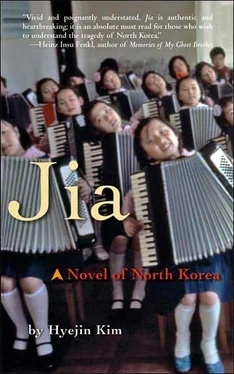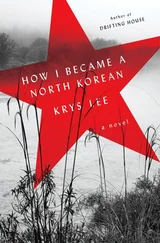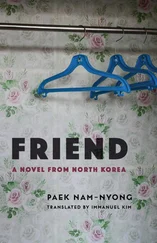My grandparents and my father were living in Anshan, then a small city in northeast China, when the Japanese began trickling out of northeast China and Korea. At first, my grandmother resisted the long journey to China because my father was sick, but my grandfather was unhappy about changes in the Korean Peninsula: the Korean fight against Japan had turned into an ideological fight between Korean people, communists in the north and nationalists in the south. Foreign influence in the Korean Peninsula shifted from Japan to the Soviet Union and United States. There were conflicts, arguments, and betrayals among ideologues everywhere in China and Korea. Choosing a side affected people’s lives so profoundly that some were found dead the day after switching from one side to the other. Nobody knew who was right, who was wrong.
Five years later, when the Korean War began in 1950, my grandparents were still in northeast China. They feared for their relatives and decided to bring them across the border. When my grandfather returned to Korea to find them, however, he was arrested by the South Korean Army. Despite his insistence that he had no ideological position, his history and his hot temper persuaded his South Korean captors to suspect he was with the North. He was sent to Geoje Island, off the southern coast of South Korea, and held there for several years. My grandmother took my father back to North Korea and found her parents. She looked for her husband but was told he had never arrived. Several years later, when the war ended, the two Koreas exchanged captives, and my grandfather and grandmother reunited in North Korea.
When prisoners of war came back to North Korea, most were welcomed ardently as heroes to the country. But my grandfather’s history and lack of ideology were not appreciated by the North Koreans. What is worse, the North Korean government became suspicious of people who had been held in South Korean prisons. Though most of the prisoners were communists, their time in the South made their commitment appear dubious, and they were gradually excluded from important positions.
In spite of my grandfather’s revolutionary activities for Korean independence, his life after the war was miserable. He received no compensation for his years in prison, and instead was placed under constant government supervision. Inside the house, he was a hero, but outside he was powerless and considered a possible reactionary element. My father grew up seeing it all, and he became cynical. He was a big man, and energetic, like his father; always the best soccer player, and at the top of his math class. He loved science and reading, but his family background limited and embittered him. While my mother was satisfied with her station in life, having realized her dreams of becoming a dancer, my father recognized that he would never get what he wanted.
My father’s talent for science brought him to despair. Although he scored the highest in his school on the university entrance examination, he could not get into the university of his choice. Every year, a set number of students from each province can enter university, and each university decides how many students it will accept from each province, distributing admission tickets to the schools in the province. In my father’s year, his school was awarded five tickets from the university where he wanted to study. The examination scores didn’t matter much: acceptance hinged on family background. Despite receiving a lower score, my father’s competitor in soccer and mathematics since elementary school easily got in, while my father was rejected. He was not a chosen person in his world.
My father’s teacher intervened on his behalf, and after negotiations with the Education Bureau, a small college admitted my father on the condition that he would start teaching there as soon as he graduated. My mother’s mother, who didn’t like my father much, worked in that college. On the school stage, she held him up as an example of the generosity of the country toward reactionary elements, but he failed to demonstrate his appreciation to the audience, which had expected a touching speech from him.
His mind was made for science. He studied and he conducted his research, becoming the youngest teacher in the college. It was then that he met my mother. They ran into each other in the corridor on the way to his laboratory. She had just found out when her next dancing performance at the Grand Theater would be and was stopping by the school to tell her mother.
On seeing my father, my mother approached him and asked, “What do you do here?”
“I’ve heard I’m regarded as a teacher,” he replied curtly.
That night, my mom asked my grandmother to bring all the faculty members to her performance; her intention, of course, was to invite my father. After the performance, they began dating. I don’t know how they came to love each other or what they talked about, but Grandmother said my father changed: he smiled more.
When my mother’s parents discovered the relationship, they almost killed my father. Such an unbalanced love affair was a slap in their faces. My father lost his job right away and was to be sent to an isolated village to teach in a small school. If my mother had given up my father, I wouldn’t be in this world, but she quit everything, including eating.
Her desperate resistance against her parents rescued my father, but in effect she sacrificed herself: my grandparents abandoned their daughter permanently and kept a close watch on my father. The marriage was not welcomed by anyone; even my parents’ friends were afraid of being punished for associating with them. The only ones who were happy were my father and mother.
My father’s self-respect was as strong as his desire to study; nobody could daunt him. He got his position back in the college, owing to my mother’s efforts, but it didn’t change his attitude toward the college and toward his in-laws.
A terrible event involving his closest friend, Sungwoo, who had a similar background, only strengthened his resistance to the government. Sungwoo couldn’t go to university, so he worked in a factory after graduation. Then, one day, he just disappeared. He had been playing poker with his coworkers during their breaks for some time, though it was prohibited (as a “vestige of Japanese imperialism”); people played anyway, and the local government wasn’t strict about it. Sungwoo was an exception. When their game was discovered, his coworkers were let off, but Sungwoo was sent to a political concentration camp. His behavior was said to be against the government; his family didn’t have the preferred background, so his sentence was compounded.
My father tried to find Sungwoo, appealing to the central government about the local government’s unfair treatment, but to no avail. Sungwoo was simply erased from his community. After that, my father became increasingly cynical. He publicly criticized the research conditions and lack of funding at the college, and he complained that school staff members were busy using the money to curry favor with their superiors. He dismissed the political science classes, which taught the ideology of Kim Il Sung. “What department am I in, science or politics?” he would say. Eventually, he was dragged away by two soldiers and taken to the Investigation Bureau. His worst offense was the possession of foreign science books from prohibited countries. Nobody knew how he got the books; he had sought them out on his own.
The scandal brought trouble to my family. My father cursed the investigators dispatched from the government. He disappeared several days later; the charge was political treason. People said he would be sent to one of the strictest political concentration camps, a place in the mountains, where no one could find him. My mom looked for him, running from village to village, begging her parents for help. At the time, she was pregnant with me: a little sister for her eight-year-old daughter.
Читать дальше












